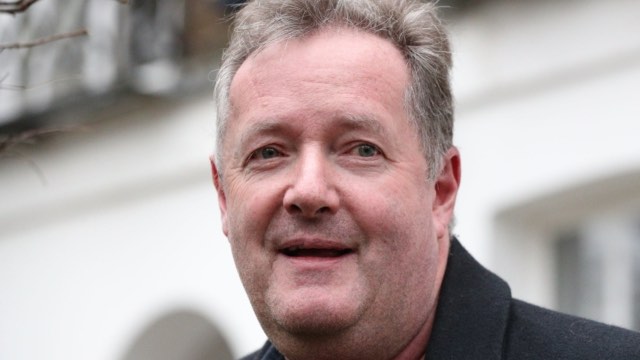The media watchdog has ruled that Piers Morgan’s criticism of the Duchess of Sussex on ITV’s Good Morning Britain did not breach the broadcasting code despite a record number of complaints about his comments.
Morgan, who quit the show after his comments produced an on-air row with another presenter, described Ofcom’s ruling as a “resounding victory” and a blow to “cancel culture”.
In a 97-page ruling, the regulator found that Morgan’s remarks were “potentially harmful and offensive” but were allowable because the code allows freedom of expression.
Following Meghan and Prince Harry’s tell-all interview with Oprah Winfrey in March, Morgan questioned the truthfulness of duchess’s account of breakdown of her mental health at the start of her marriage.
“Who did you go to?” he said. “What did they say to you? I’m sorry, I don’t believe a word she said, Meghan Markle. I wouldn’t believe it if she read me a weather report.”
The next day Morgan stormed off set after a discussion about Meghan with his colleague Alex Beresford. The weather presenter defended the couple, telling Morgan: “I understand you’ve got a personal relationship with Meghan Markle, or had one, and she cut you off. She’s entitled to cut you off if she wants to. Has she said anything about you since she cut you off? I don’t think she has but yet you continue to trash her.”
Morgan’s remarks prompted more than 57,121 complaints to Ofcom in a week and were criticised by the mental health charity Mind. The regulator ruled in Morgan’s favour, but reminded ITV to be cautious when discussing mental health.
An Ofcom spokesman said: “This was a finely balanced decision. Mr Morgan’s comments were potentially harmful and offensive to viewers, and we recognise the strong public reaction to them. But we also took full account of freedom of expression.”
He added: “Under our rules, broadcasters can include controversial opinions as part of legitimate debate in the public interest, and the strong challenge to Mr Morgan from other contributors provided important context for viewers.
“Nonetheless, we’ve reminded ITV to take greater care around content discussing mental health and suicide in future. ITV might consider the use of timely warnings or signposting of support services to ensure viewers are properly protected.”
Morgan said the Ofcom ruling was a vindication of his defence of his remarks.
He tweeted: “I’m delighted OFCOM has endorsed my right to disbelieve the Duke & Duchess of Sussex’s incendiary claims to Oprah Winfrey, many of which have proven to be untrue. This is a resounding victory for free speech and a resounding defeat for Princess Pinocchios. Do I get my job back?”
Writing in the Mail Online he said: “If Ofcom had found against me, that would have signalled the end of every UK TV journalist’s right to express any honestly held opinion on air lest it upset the likes of Meghan Markle.
“The whole point of journalism is surely to question and challenge statements from public figures, particularly when no actual evidence is produced to support them?”
He added: “This is not about me, or Meghan Markle. It’s about free speech and the right to have an opinion.”
“We now live in a woke-ravaged era where it’s become a punishable offence to say what you really think about almost anything for fear that someone, somewhere, will be offended.
“This insidious ‘cancel culture’ as it’s been termed represents the most serious threat to democracy in my lifetime.”
A summary of the Ofcom ruling said: “This programme focused on the interview between Oprah Winfrey and the Duke and Duchess of Sussex.
“It contained statements about suicide and mental health which had the potential to be harmful and highly offensive.
“However, our decision is that overall the programme contained sufficient challenge to provide adequate protection and context to its viewers. We also considered that the comments about race in the programme could have been potentially highly offensive, but that the comments were sufficiently contextualised. Therefore, our decision is that the programme did not breach the Ofcom broadcasting code.”







